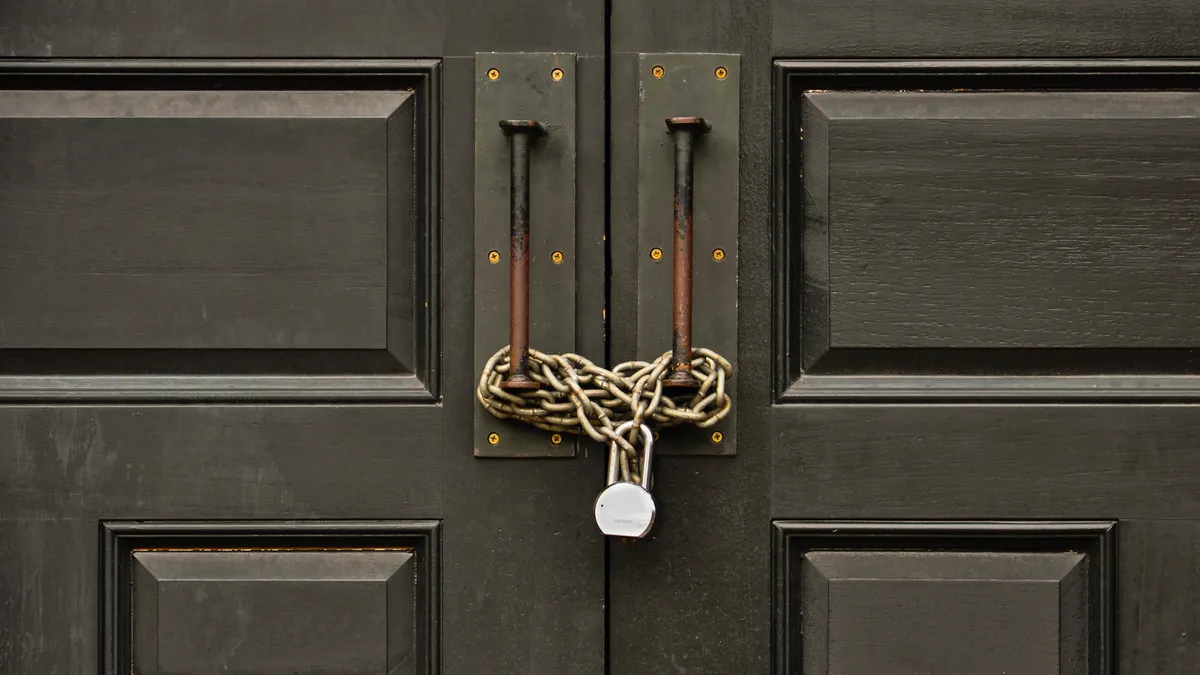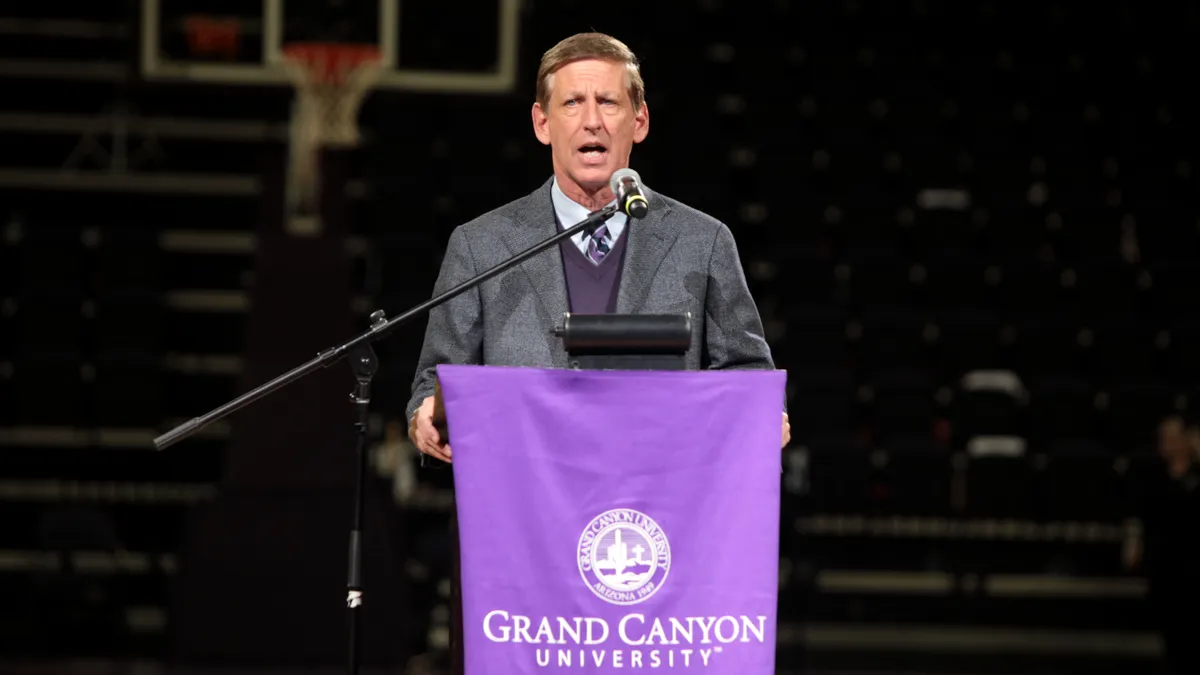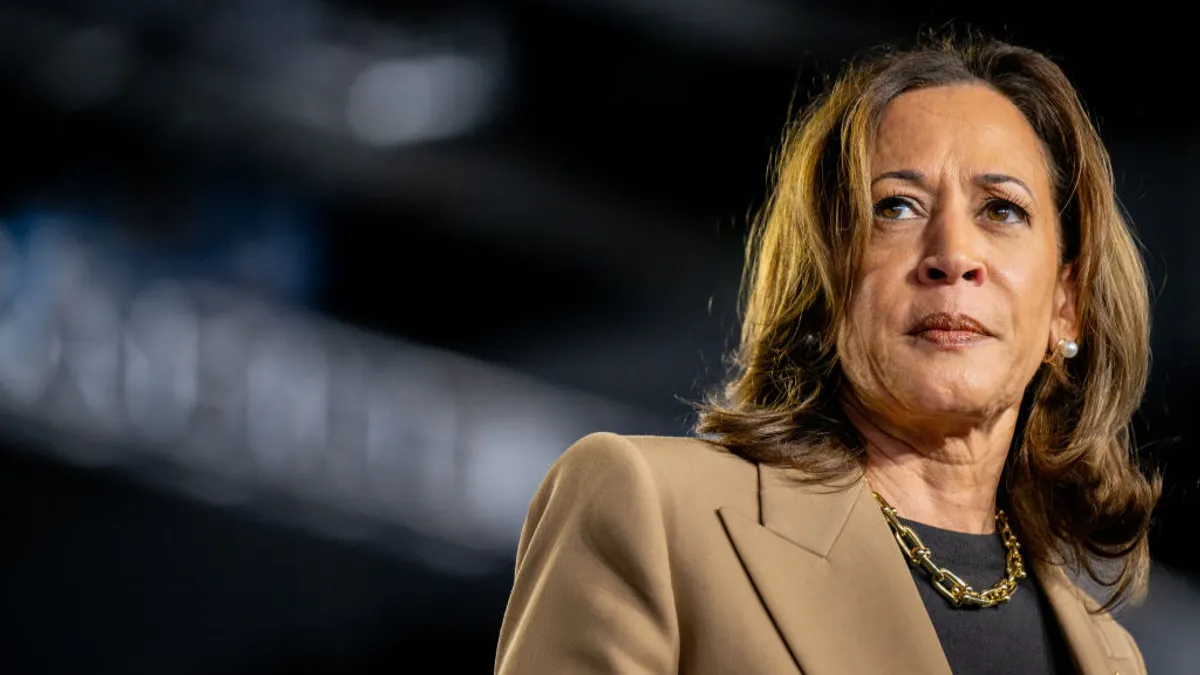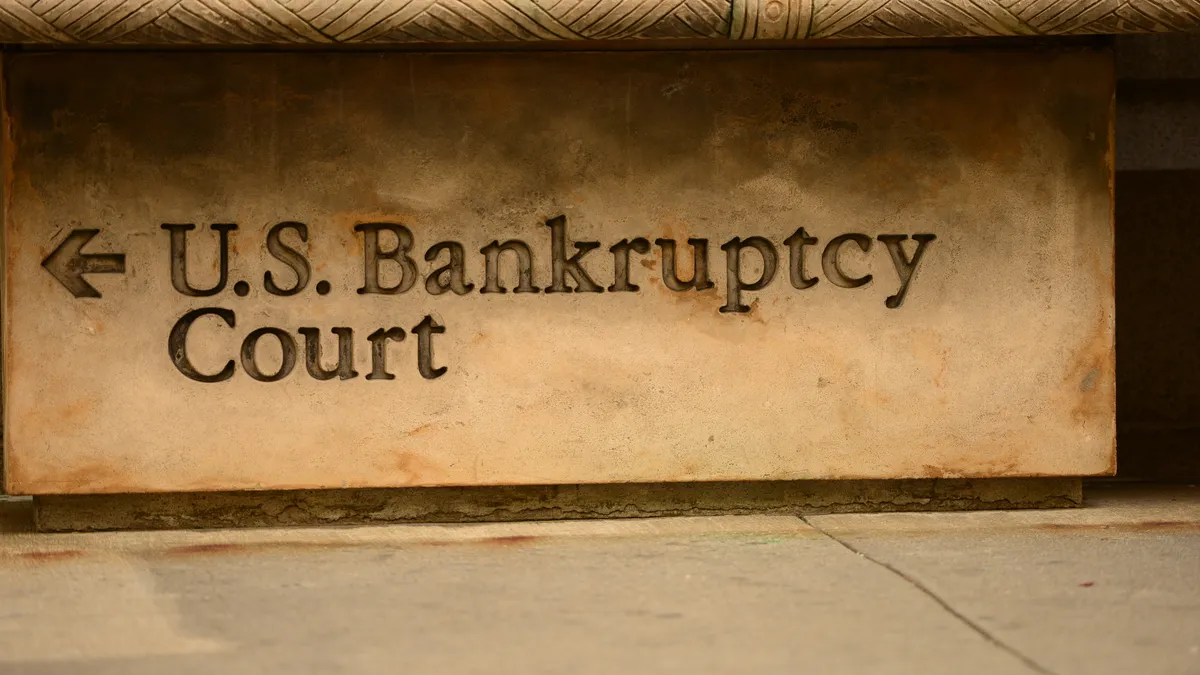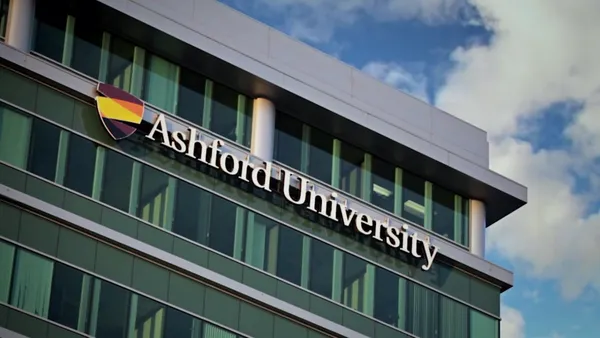When Stratford University, a for-profit college with a handful of campuses in Virginia and Maryland, announced last month it was going to close, officials only gave students one week of notice before classes ended for good.
The news made Stratford the latest in a long line of for-profit colleges to close precipitously. These sudden closures often leave students scrambling to figure out where their credits can transfer and how to finish their education.
Stratford President Richard Shurtz, who owns the university with his wife, blamed the closure on the U.S. Department of Education.
The department recently revoked recognition of Stratford’s accreditor, the Accrediting Council for Independent Colleges and Schools, leaving the university with 18 months to find a new agency or else lose access to federal financial aid. In the meantime, the department placed heavy restrictions on colleges accredited by ACICS, including limitations on their enrollment.
Shurtz said these actions made it impossible for Stratford to survive financially. But some policy experts contend the university could have taken actions months ago to change its fate.
ACICS’ recognition has been under review — on and off again — since the Obama administration, with the latest threat to its recognition lasting more than a year before it was yanked. That gave Stratford ample time to find a new accreditor and avoid the Education Department’s restrictions, policy experts said.
“To blame it on the department is misleading,” said Michael Itzkowitz, a senior fellow at Third Way, a center-left think tank. “The writing has been on the wall for about 18 months now.”
‘Six years of notice’
The future of ACICS had been in doubt several years before the Education Department revoked its recognition in August. The agency said it was stripping the agency of recognition because of continued noncompliance with the department’s standards, such as having adequate resources and staff expertise.
It wasn’t the first time the Education Department yanked recognition from ACICS, which predominantly accredits for-profit colleges. In 2016, the Obama administration ended recognition of ACICS during a crackdown on proprietary institutions.
The Trump administration reinstated the accreditor after ACICS waged a legal battle against the Education Department. But department officials repeatedly raised issues with ACICS — even after it regained recognition.
For instance, Virginia state regulators flagged a college accredited by ACICS, Virginia International University, in 2019, alleging that the for-profit institution was home to rampant plagiarism and poor online education. And in 2020, a USA Today investigation found that another ACICS-accredited institution, Reagan National University, didn’t appear to have any instructors or students.
In June 2021, a top Education Department official denied ACICS recognition. But ACICS appealed the decision.
By the time the Education Department revoked ACICS’ recognition in August — for the final time — the accreditor only oversaw about two dozen institutions. That’s down from more than 230 when ACICS first lost recognition in 2016.
Barmak Nassirian, vice president for higher education policy at the interest group Veterans Education Success, questioned why Stratford had to close this time ACICS lost recognition. Stratford has been accredited by ACICS since at least 2002, well before the accreditor lost recognition for the first time.
“It really sort of strains credulity to blame the department on this,” Nassirian said. “The institution has had better than six years of notice that its accreditor is in trouble.”
Shurtz said Stratford was seeking accreditation with the Distance Education Accrediting Commission but did not respond to emailed questions about when university officials submitted an initial application. Applying for DEAC accreditation can take at least two years, and the agency can deny institutions after reviewing their curricula, outcomes and other matters.
DEAC policies also forbid institutions that have applied for accreditation from suggesting that they are accredited or will be accredited until accreditation has been granted.
Who is really responsible for the sudden closure?
The Education Department placed several restrictions on ACICS-accredited institutions that wanted to continue participating in Title IV programs, which include Pell Grants and federal student loans. Losing access to this funding source can prove fatal for many colleges.
The department said it would bar institutions from enrolling new students who couldn’t complete their programs within 18 months and asked colleges to provide financial collateral in the event they closed.
The enrollment restrictions were too much for Stratford to bear, according to Shurtz. When the closure was announced, he said that new students accounted for about 40% of the university’s revenue.
Nassirian flagged the reliance on these students as an issue.
“Why is it that they’re so reliant on new enrollments to service their current students that they have to close so immediately?” Nassirian said.
Policy advocates have frequently called on the Education Department to monitor the financial health of colleges to prevent sudden closures. But state regulators also have a part to play in flagging financial issues, according to Dustin Weeden, a senior policy analyst at the State Higher Education Executive Officers Association.
“There’s some challenges with for-profits because they tend to be complex structures operating in multiple states, so it’s not always easy for states to truly evaluate the financial health of institutions,” Weeden said. “But there’s a big role for states to do that.”
When states find colleges could be in financial trouble, they can ask them to provide teach-out plans, which help students transfer to different institutions to finish their education.
The Education Department did not answer Wednesday whether Stratford had provided a teach-out plan.
Stratford was working with the University of the Potomac and Chamberlain University, two for-profits, to accept some of the institution’s students, Shurtz said when the closure was announced.
The university was still working on finding other institutions for students in certain fields, such as the university's culinary program. Shurtz did not respond to a request for comment Wednesday.
The State Council of Higher Education for Virginia is providing students with a list of six other institutions to which they can transfer. All but one are for-profit colleges.
A SCHEV spokesperson said Stratford hasn’t been regulated by the agency since 2010. A Virginia law allows private institutions to be exempt from SCHEV oversight once they’ve been regulated by the agency for two decades.
The Maryland Higher Education Commission’s website said it is working with Stratford to gather details about the closure and will post teach-out opportunities when information is available.
Stratford’s Baltimore campus is already slated to be converted into apartments, the Baltimore Business Journal reported. A local developer said he bought the site from the university in May 2021 for almost $3 million.
Preexisting teach-out plans can make closures much more orderly, Weeden said.
“Even if an institution does close,” Weeden said, “it’s not just like, ‘We’re closing. Good luck.’”



